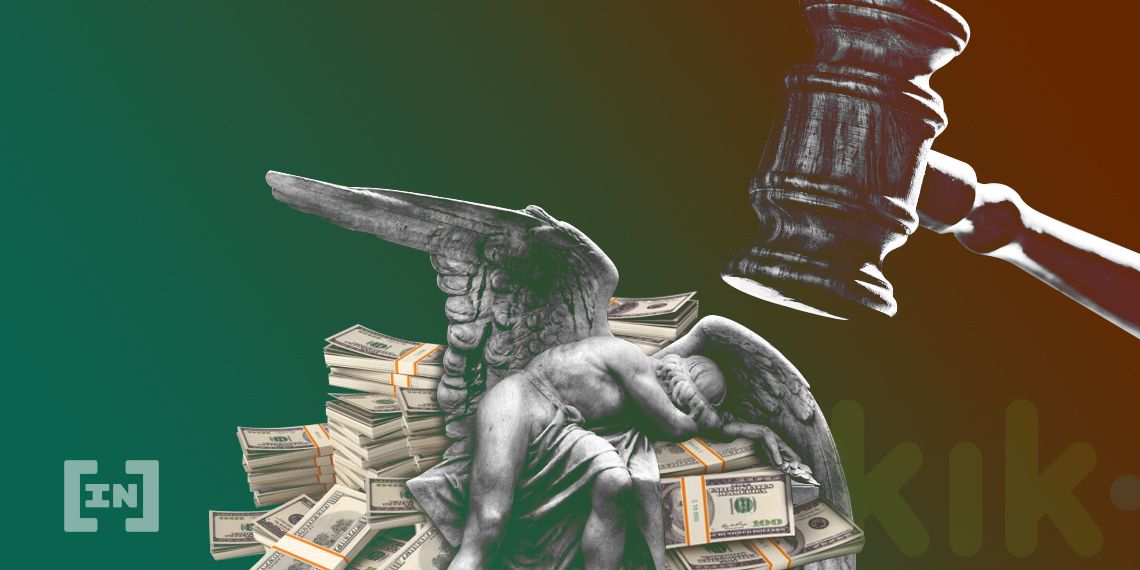Kik’s Kin Is an Unregistered Security, Rules Judge
As BeInCrypto reported previously, the SEC brought a lawsuit against Kik in 2019. The regulator claims that the Kin token (KIN) ICO represented the sale of an unregistered security. Kik has been fighting the accusations since. The company even created the DefendCrypto group in an attempt to crowdfund its defense. However, Judge Alvin Hellerstein of the Southern New York District Court ruled in favor of the SEC. Hellerstein agreed with the SEC that KIN satisfies the legal definition of a security. The “Howey Test” defines a security as an investment of money in a common enterprise with the expectation of profiting from the efforts of others. According to Hellerstein, the token sale clearly involved the investment of money (both in eth and US dollars). Meanwhile, the Kin token itself represented a common enterprise. Additionally, investors expected to profit. The document notes that the company itself had repeatedly stressed the finite supply of Kin tokens. Therefore, growing demand would make each token bought during the ICO period more valuable in the future. Finally, the Kin ecosystem that Kik had publicized was still undeveloped at the time of the sale. Any profits resulting from increased demand for Kin would be the result of the efforts of Kik itself since it would develop additional products and services that would use the cryptocurrency.
Kik Might Fight Back… Again
According to a press release issued by Kik Interactive on Wednesday, the company is considering appealing the latest decision. Ted Livingston, the CEO of Kik, stated his disappointment at the ruling, adding that the firm was still considering all of its options. He stated that Kik has consistently supported the SEC’s goal of protecting investors and that the company takes compliance seriously. Livingston also reaffirmed the arguments made in court – namely that Kin’s functionality as a currency means that it doesn’t fit the typical definition of a security. Meanwhile, Eileen Lyon, Kik’s General Counsel, accused the SEC of dragging its feet in terms of regulation, leaving the cryptocurrency industry playing a guessing game. She added that the agency should “engage in proper rulemaking.”What Does the Kik Ruling Mean for the Cryptocurrency Industry?
The ruling may provide a precedent for similar cases going forward. Stephen Palley, a partner at legal firm Anderson Kill, tweeted that the judgment,clinically shreds […] the entire 2017/2018 ICO craze.
Many companies sold digital tokens to US investors during the ICO boom. The platforms that these tokens would function with were often not developed at the time of the sale, and extensive roadmaps in their whitepapers showed that work by the companies would potentially increase the desirability (and, therefore, the price of the tokens). Given that the Howey Test determined Kin to be a security, others that benefitted from ICO fundraising may soon face similar legal action.Judge Hellerstein's ruling on the SEC's Kik Complaint clinically shreds ICOs, "token distribution events", utility tokens, and the entire 2017/2018 ICO craze.
— Palley (@stephendpalley) September 30, 2020
This was entirely predictable, and expect to see more of the same.
And now I shall thread this shred👇 pic.twitter.com/dCr9VtrqEm
Disclaimer
In adherence to the Trust Project guidelines, BeInCrypto is committed to unbiased, transparent reporting. This news article aims to provide accurate, timely information. However, readers are advised to verify facts independently and consult with a professional before making any decisions based on this content. Please note that our Terms and Conditions, Privacy Policy, and Disclaimers have been updated.

